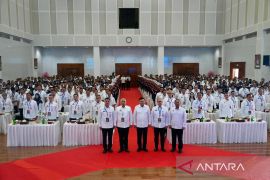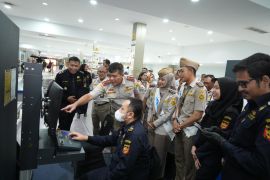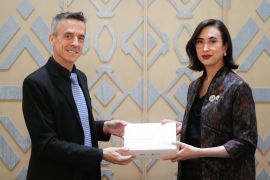The trend must be responded to by all involved parties with vigilance since cyber criminals always await the following trend to be exploited.Jakarta (ANTARA) - Indonesia faced more than 11 million cyber attacks in the first quarter of 2022, according to cyber security company Kaspersky.
"The trend must be responded to by all involved parties with vigilance since cyber criminals always await the following trend to be exploited,” Kaspersky’s general manager for Southeast Asia, Yeo Siang Tiong, said in a press statement released on Tuesday.
The rampant cyber threats were triggered by many people using cyberspace for obtaining non-fungible tokens (NFT), participating in the metaverse, and conducting crypto asset transactions, as well as investment adoption among youths.
During the January–March 2022 period, Kaspersky detected and blocked a total of 11,802,558 different cyber threats. The figure represented a 22-percent rise compared to the same period last year, when it was recorded at 9,639,740.
Related news: LIPI forms cyber security team
However, the number of cyber attacks in the first quarter of 2022 fell 2 percent compared to the fourth quarter of 2021.
Based on the statistics, Kaspersky noted that Indonesia is ranked first in Southeast Asia and 60th in the world in terms of dangers posed by Internet surfing.
Kaspersky reminded the public to think twice before clicking suspicious links in e-mails or message text. “Don’t open the message if someone does not recognize the sender.”
When installing applications, one should only download from authorized apps such as Google Play and App Store. Although the apps will not be 100-percent secure, the risk of facing cyber attacks such as malware Trojan will be far smaller.
Related news: BSN thwarted 28.8 million cyberattacks against KPU until May 23
The habit of updating operation and application systems may help secure data and apparatuses. Updating systems helps patch the vulnerability of the previous version.
Always use safe connections when using the Internet and avoid accessing banks and other important services on public WiFi.
Last, be wary of free antivirus software from unclear sources for it could be pseudo malware.
Related news: Govt prepares two ways to distribute cooking oil at Rp14,000/liter
Related news: 131 areas outside Java-Bali implementing Level 1 PPKM: ministry
Translator: Natisha Andarningtyas, Suharto
Editor: Fardah Assegaf
Copyright © ANTARA 2022











